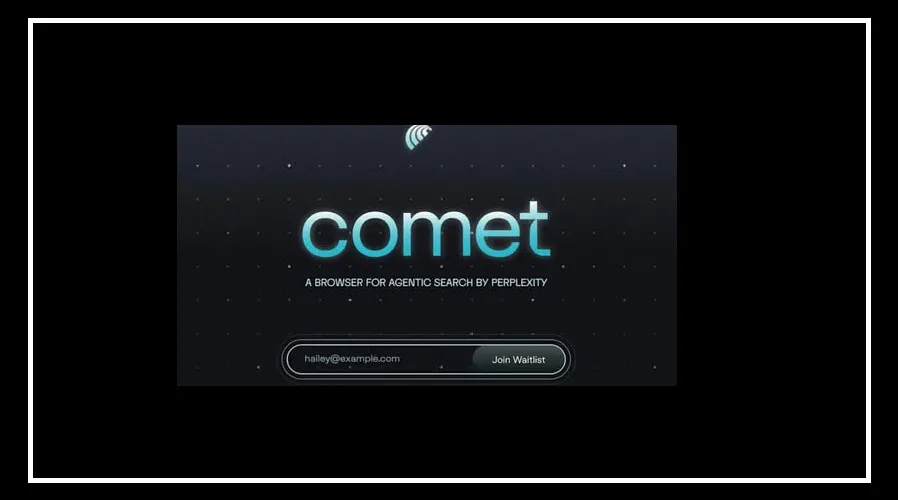Perplexity has launched its AI-powered browser, Comet, in India. The announcement was made by Perplexity AI’s co-founder, president, and CEO, Arvind Srinivas, on LinkedIn.
The company aims to reach the world’s largest internet population outside China by introducing Comet in India. Currently, the browser is available only for paid users.
Comet can help users shop online, schedule meetings, and create research summaries.
It is available on Windows and macOS for Perplexity Pro subscribers. Android users can pre-order, and iOS support is expected soon.
A Browser That Thinks
Srinivas told Hindustan Times that Comet represents a shift “from browsing to thinking”, positioning it as a thinking partner rather than a passive tool.
Comet combines traditional Chromium-based browsing with an always-on AI sidebar, called “Agentic.” It can:
Follow multi-step workflows across tabs
Compare prices and reviews
Draft and send emails
Book meetings
Complete transactions and payments (if authorized)
Perplexity aims to reduce tab clutter by carrying forward the context of tasks and projects, rather than just individual pages.
Comet stores browsing history and AI interactions locally with end-to-end encryption. It also integrates with password managers.
Perplexity highlights enterprise features like admin controls and compliance commitments to attract corporate users.
Expanding Operations in India
The Comet AI browser launch marks Perplexity’s major push into India, the world’s second-largest internet market after China.
The company has partnered with Bharti Airtel, offering millions of Airtel customers free access to Perplexity Pro for one year.
Perplexity also plans to hire locally, signaling its intention to expand operations in India.
India is a strategic market for Perplexity due to its large and tech-friendly user base, especially as agentic AI is still being tested in daily workflows.
However, there are questions about regulators and publishers’ responses to a browser that scrapes, summarizes, and acts on open web content.
It also remains to be seen how competitors like Google and Microsoft might respond by introducing similar features.

























